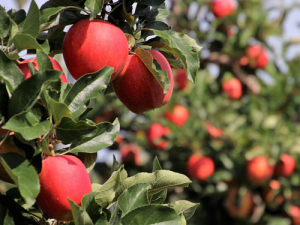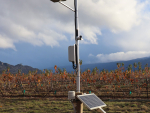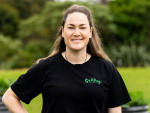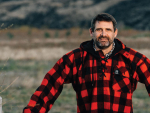China remains the largest market for NZ apples - taking 17% of the crop.
However, others are steadily rising, including Vietnam which takes 11% of the crop - just ahead of Taiwan.
While China remains an important market for NZ apples, Apples and Pears NZ chief executive Terry Meikle says growers are looking around the world and seeing what is happening and making sure they spread their risk.
"In recent times, Vietnam is proving pretty lucrative and there is a certainly a lot of potential growth," he told Hort News. "There is a young demographic in a lot of these Asian countries and we would like to see growth in Japan and see Korea opened up. No one in the world has access to Korea and we'd like to see that prioritised."
Meikle says India is another market they would also ike to see opened up. He says while Australia has better access to that market, it still hasn't managed to get a reduction on the tariffs on apples.
Climate change is also an issue which Apples and Pears, as an organisation, is taking very seriously Meikle adds. He says it has recently employed a new member of the team as Global Sustainability Advisor. That person's job is to look at all the alternative mitigations and what the potential opportunities are as well.
Meikle says one issue that some growers are turning to is covering their crops to prevent things like hail and rain damage. Cherries, kiwifruit and blueberry are just of the fruits that are being covered.
Meikle says covering a crop does lengthen the season and changes the dynamics of pest and disease control.
"This is an area that we are going to have to do more research and developent in and we are."
Meikle talks about a wide range of smart sustainable projects and work streams being undertaken including a spray-free vision by 2050. He adds that the day before Apple and Pears annual conference, at the end of August, it and Callaghan Innovation are hosting a connector event for innovators, researchers and growers within the apple and horticulture sector. Meikle says the aim of 'Agritech in the Orchard' is to build a deeper understanding of industry problems and the available solutions, as well as closing the gap between the industry and agritech.
"The key issue is economies of scale and to make the new technologies economically viable for the smaller growers as soon as we can," he adds. "The big guys are already investing in automation in their packhouses and orchards and if we can attract investors and develop partnerships and make technology available to all growers that would be a great achievement."

















